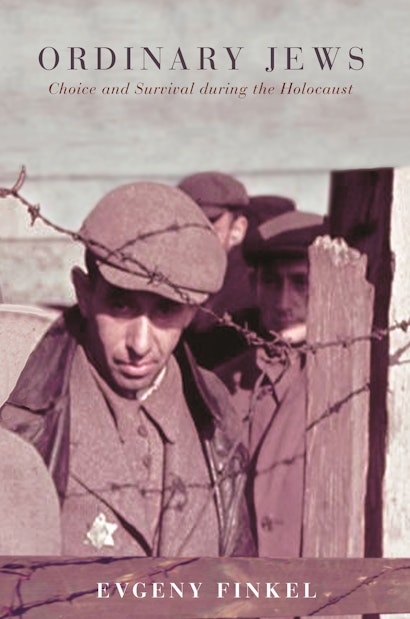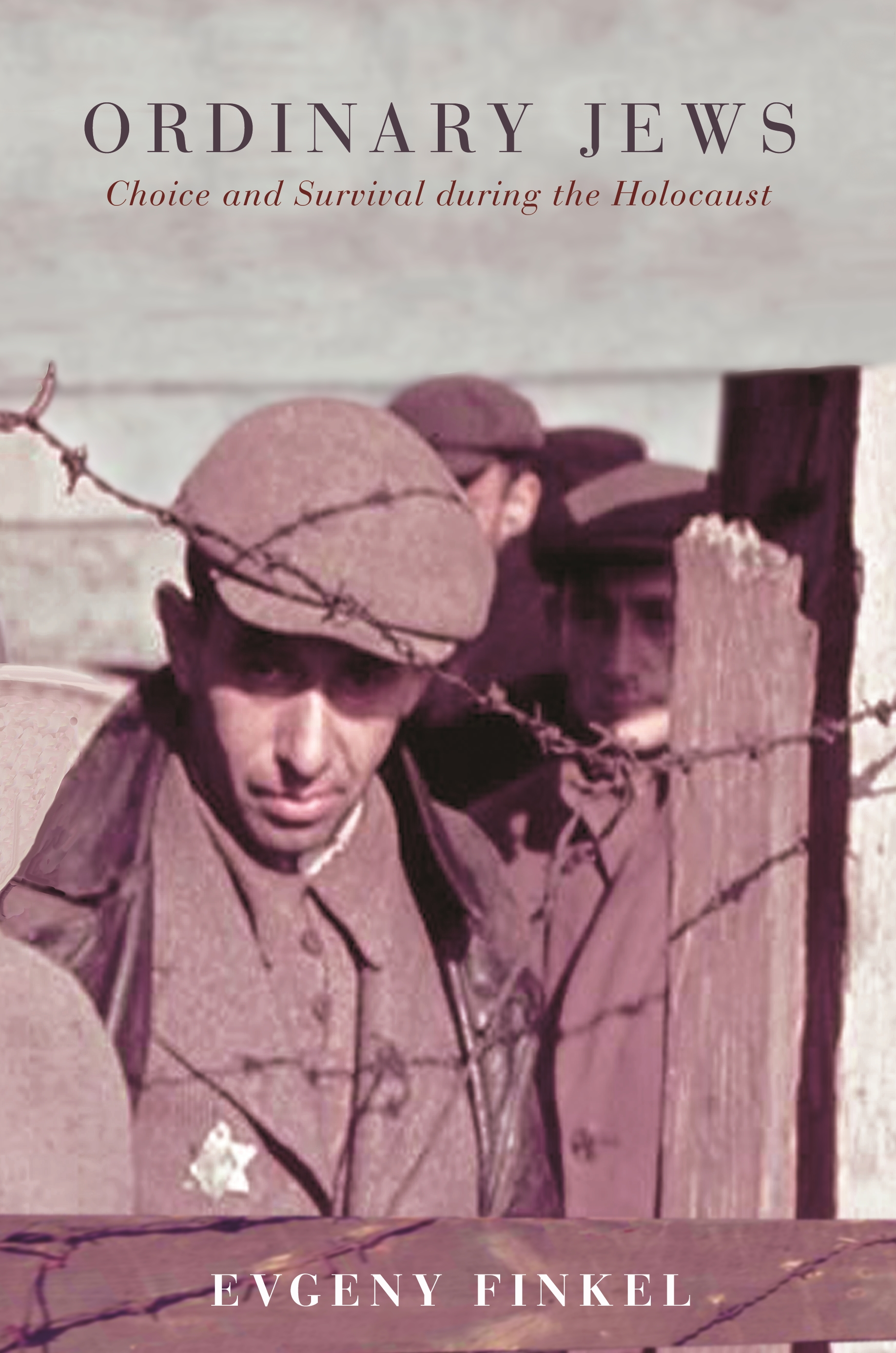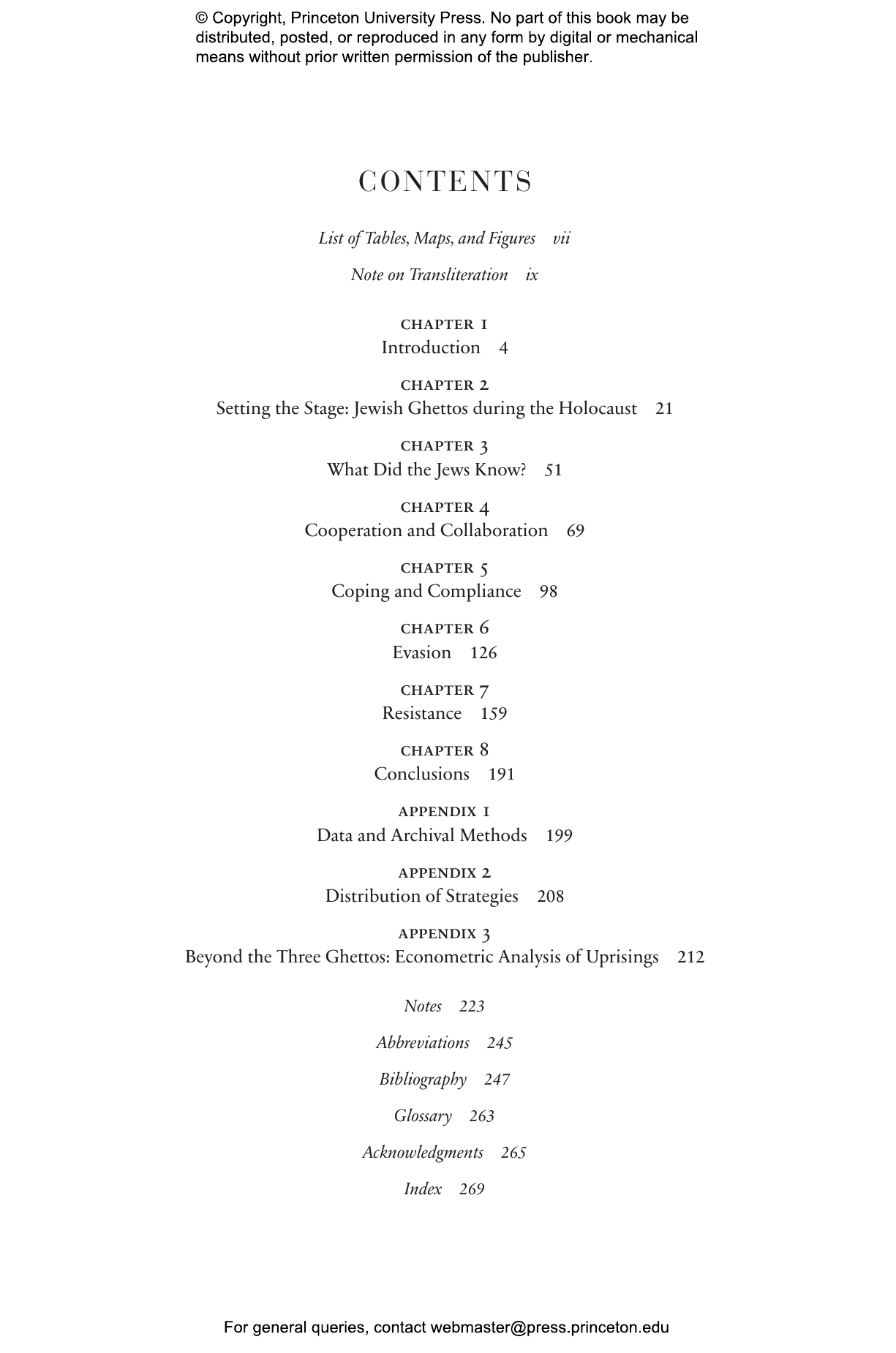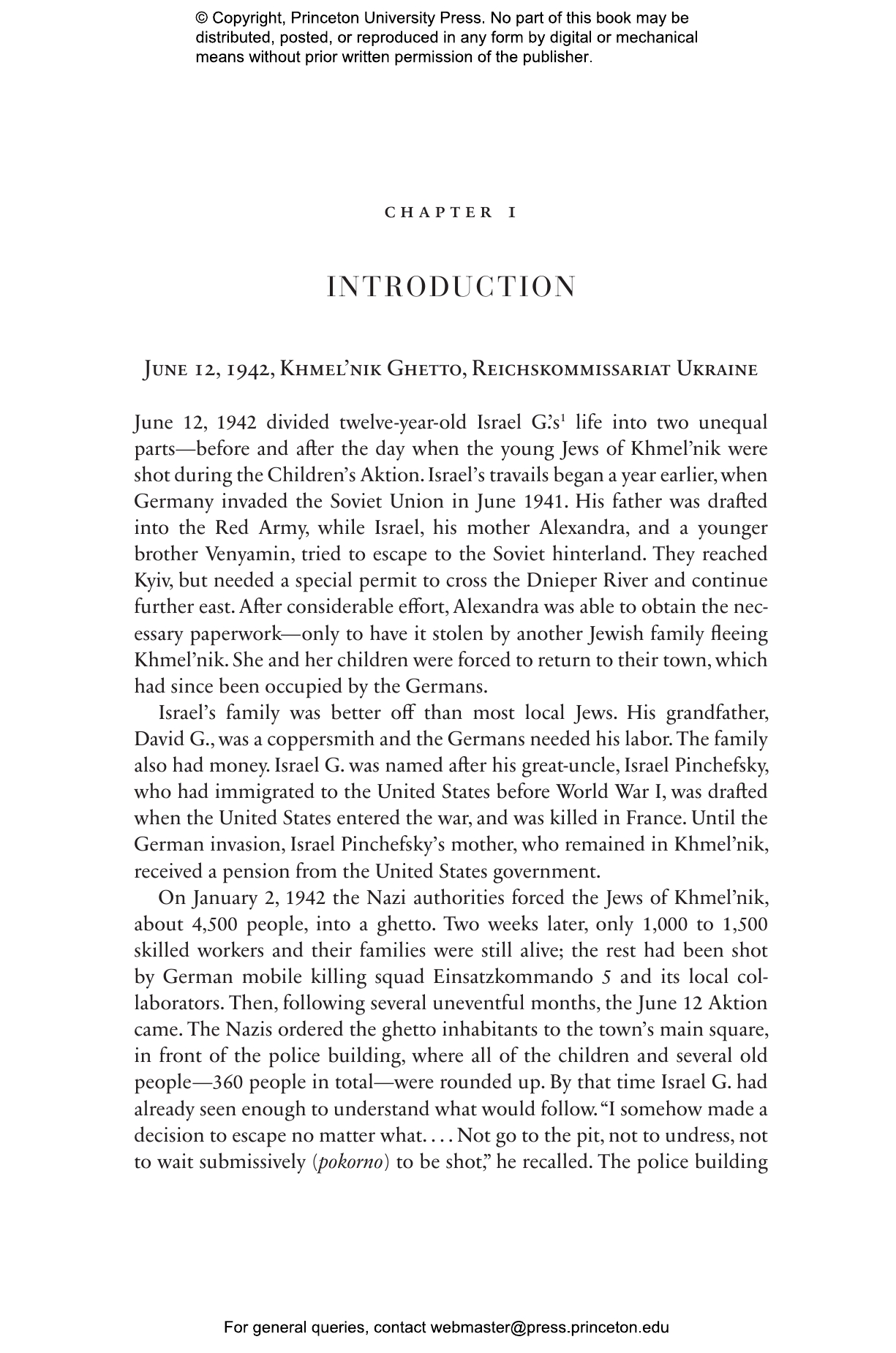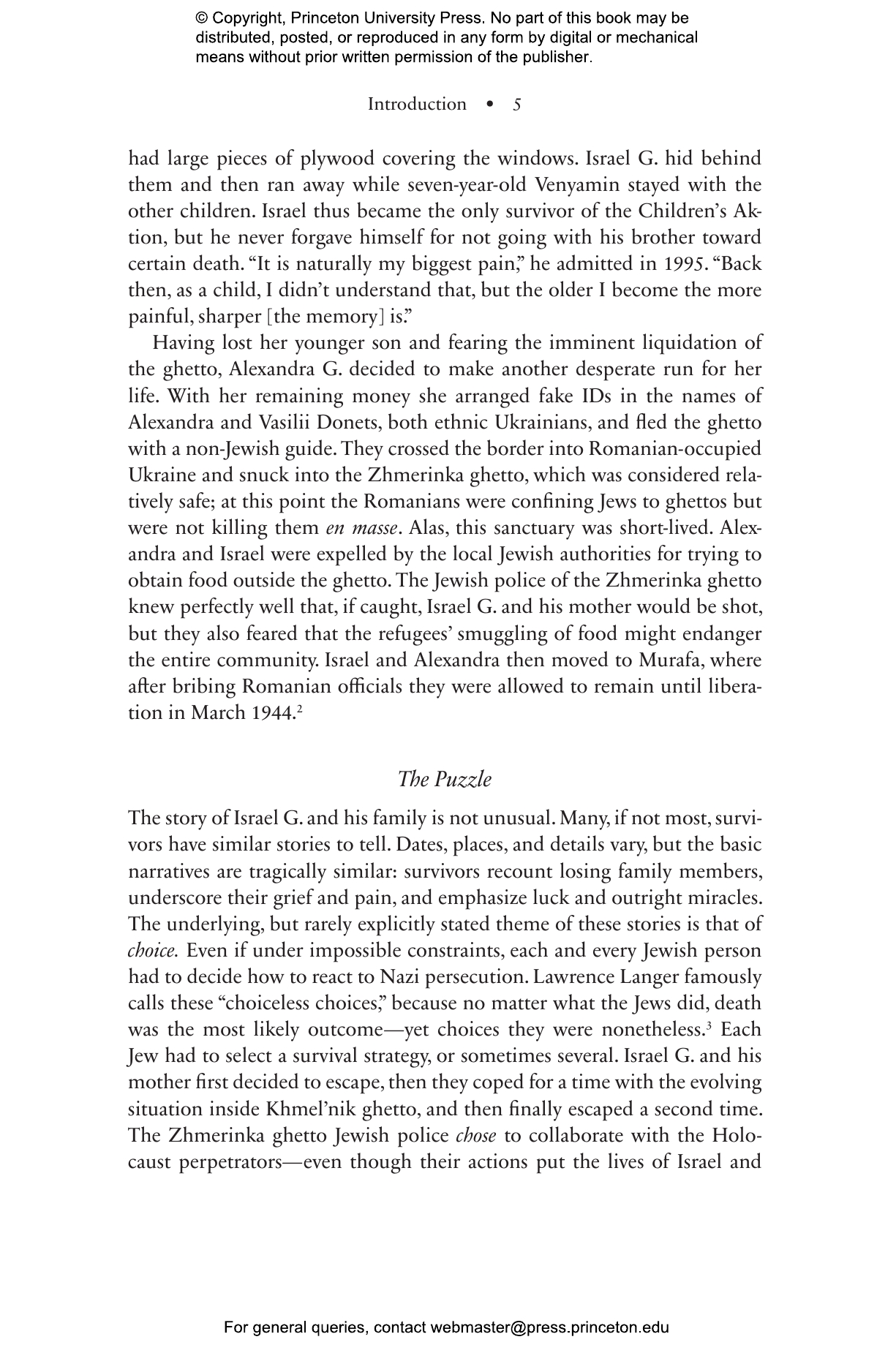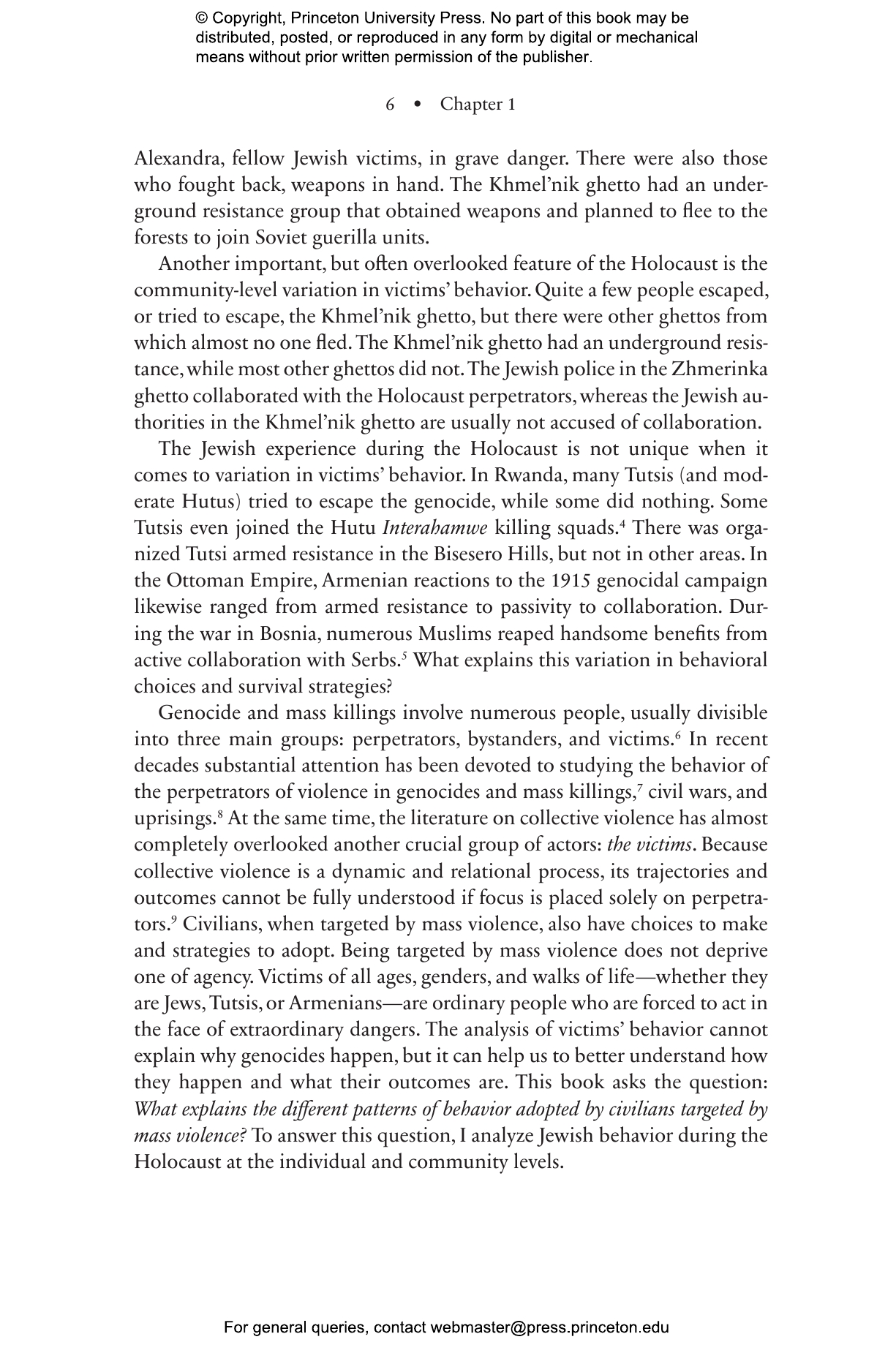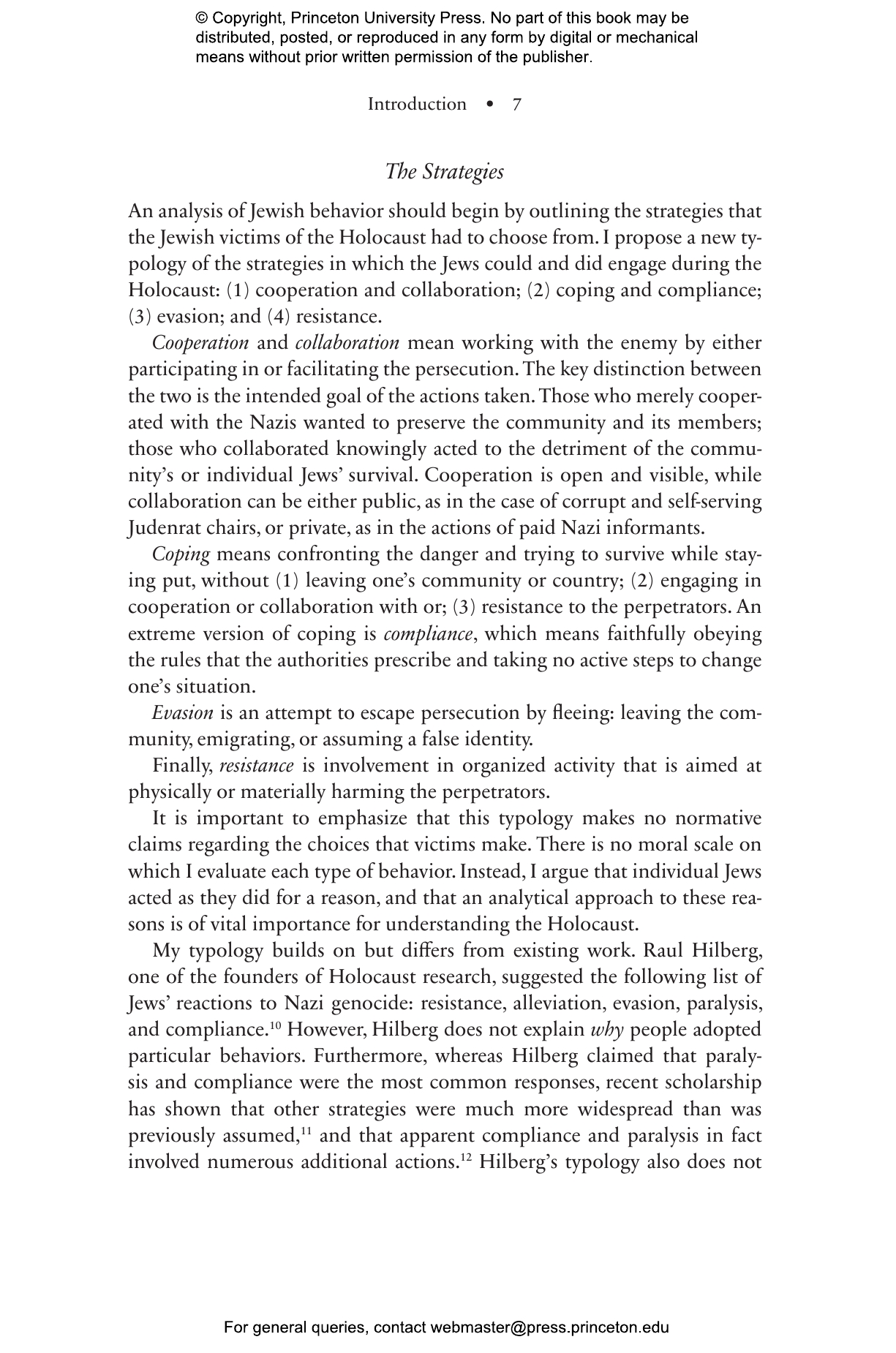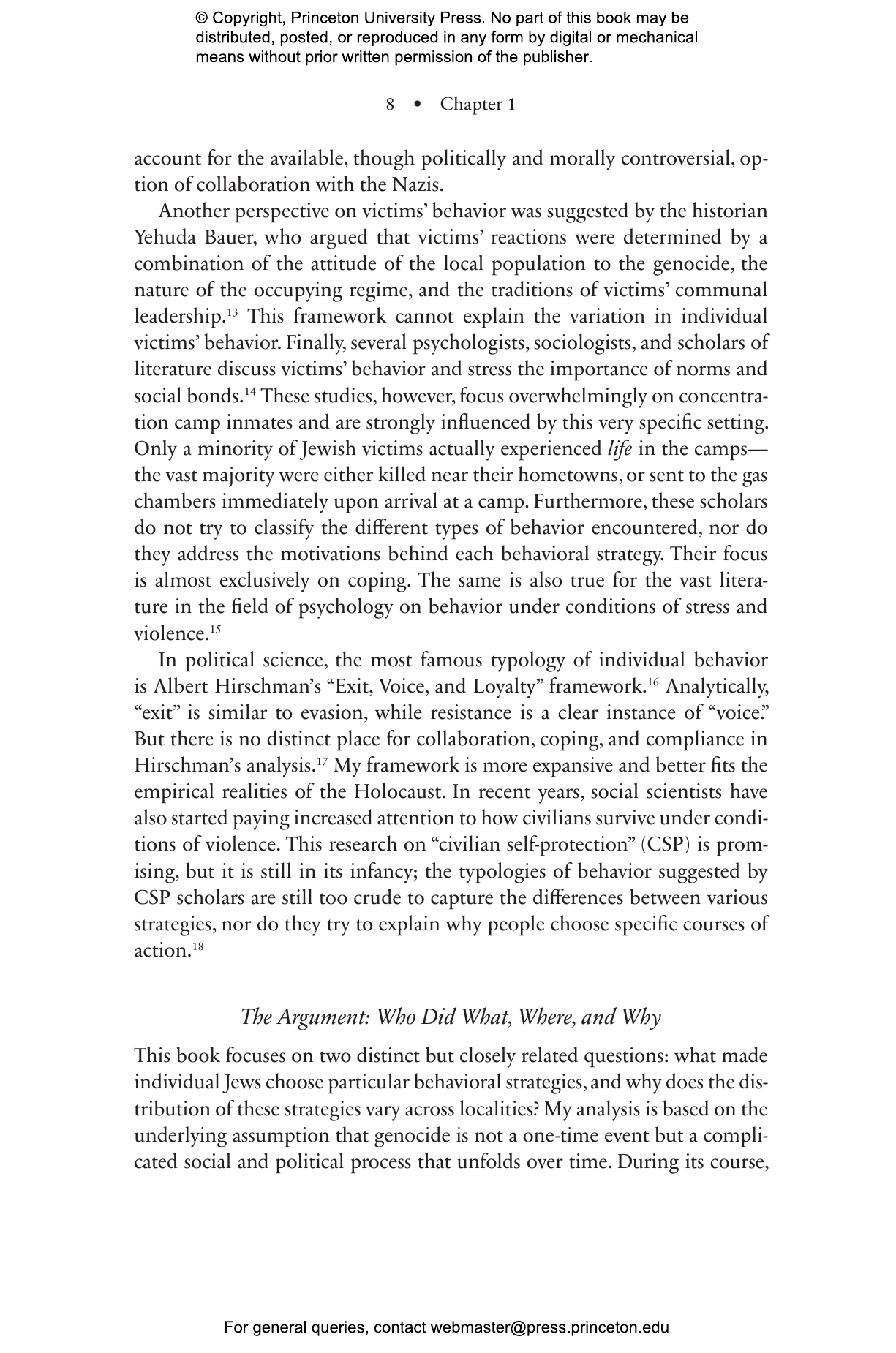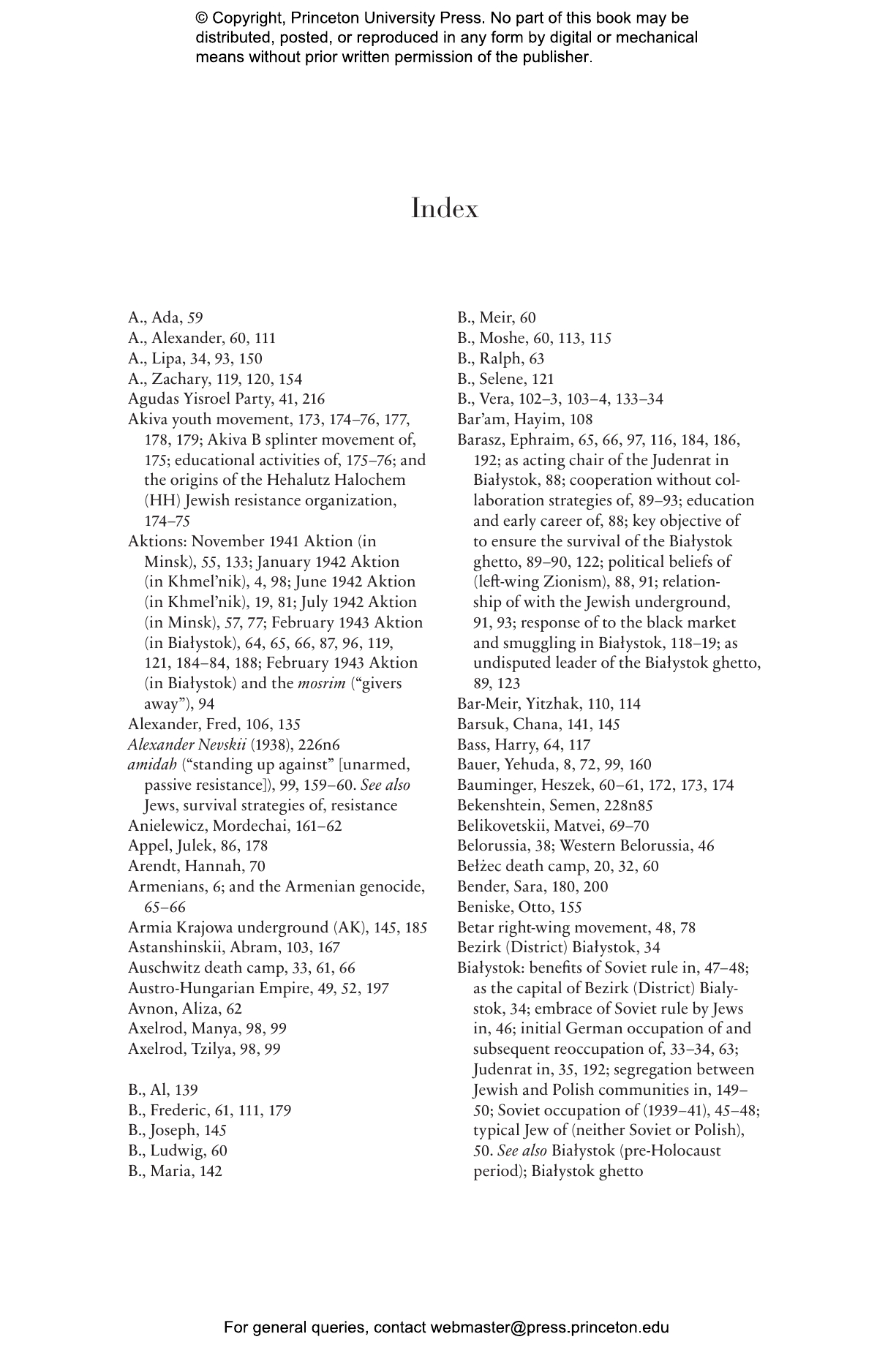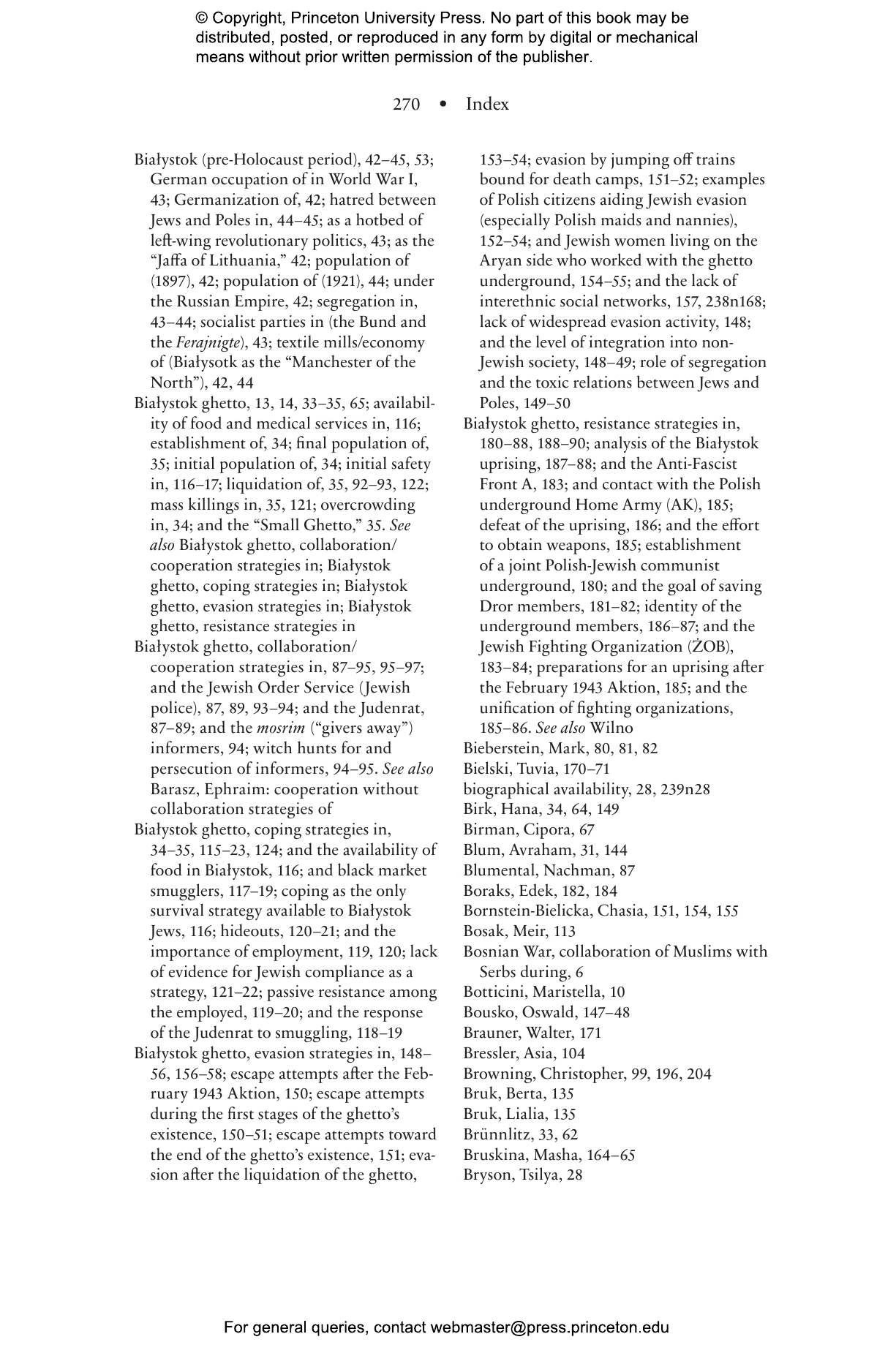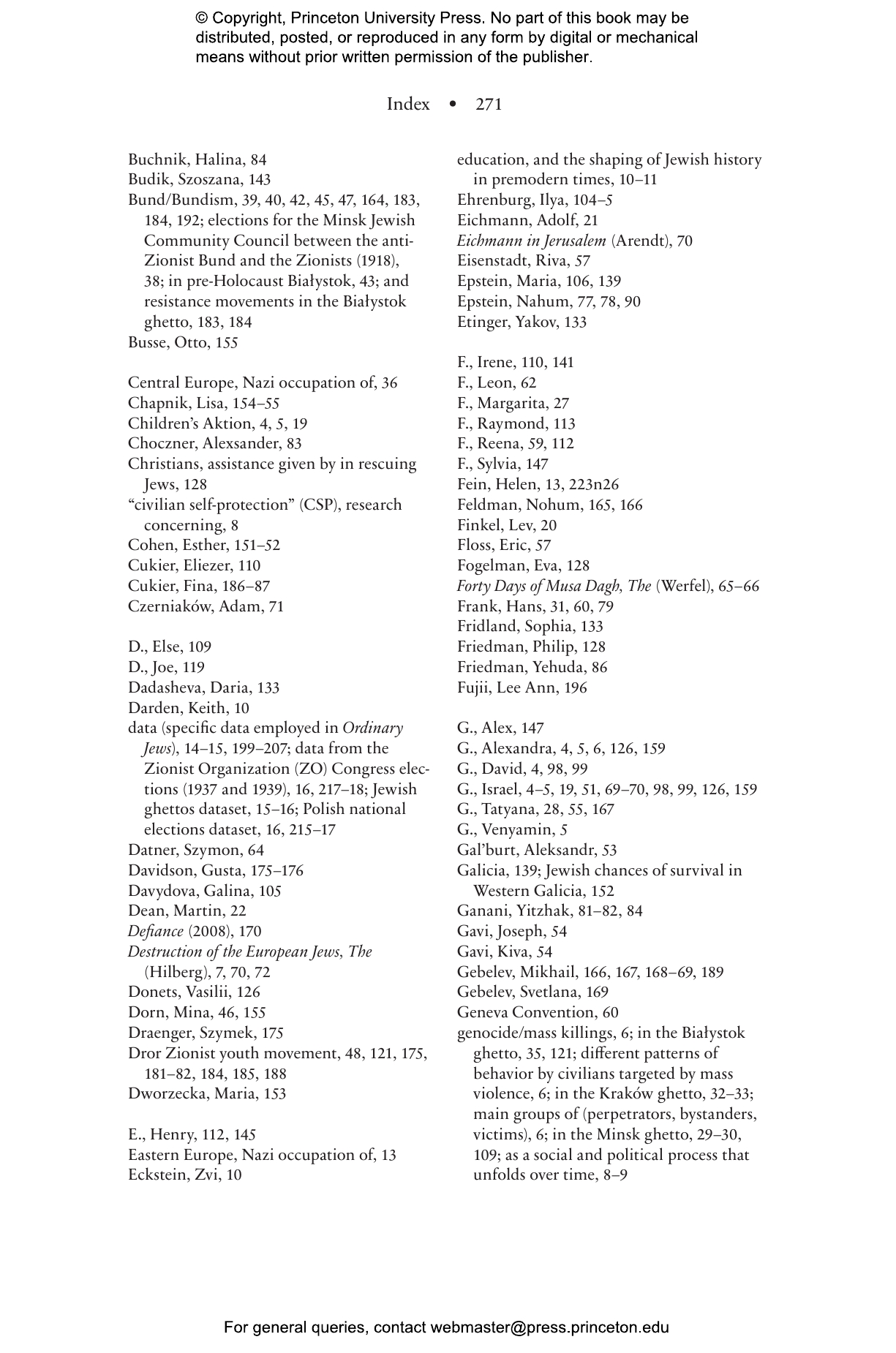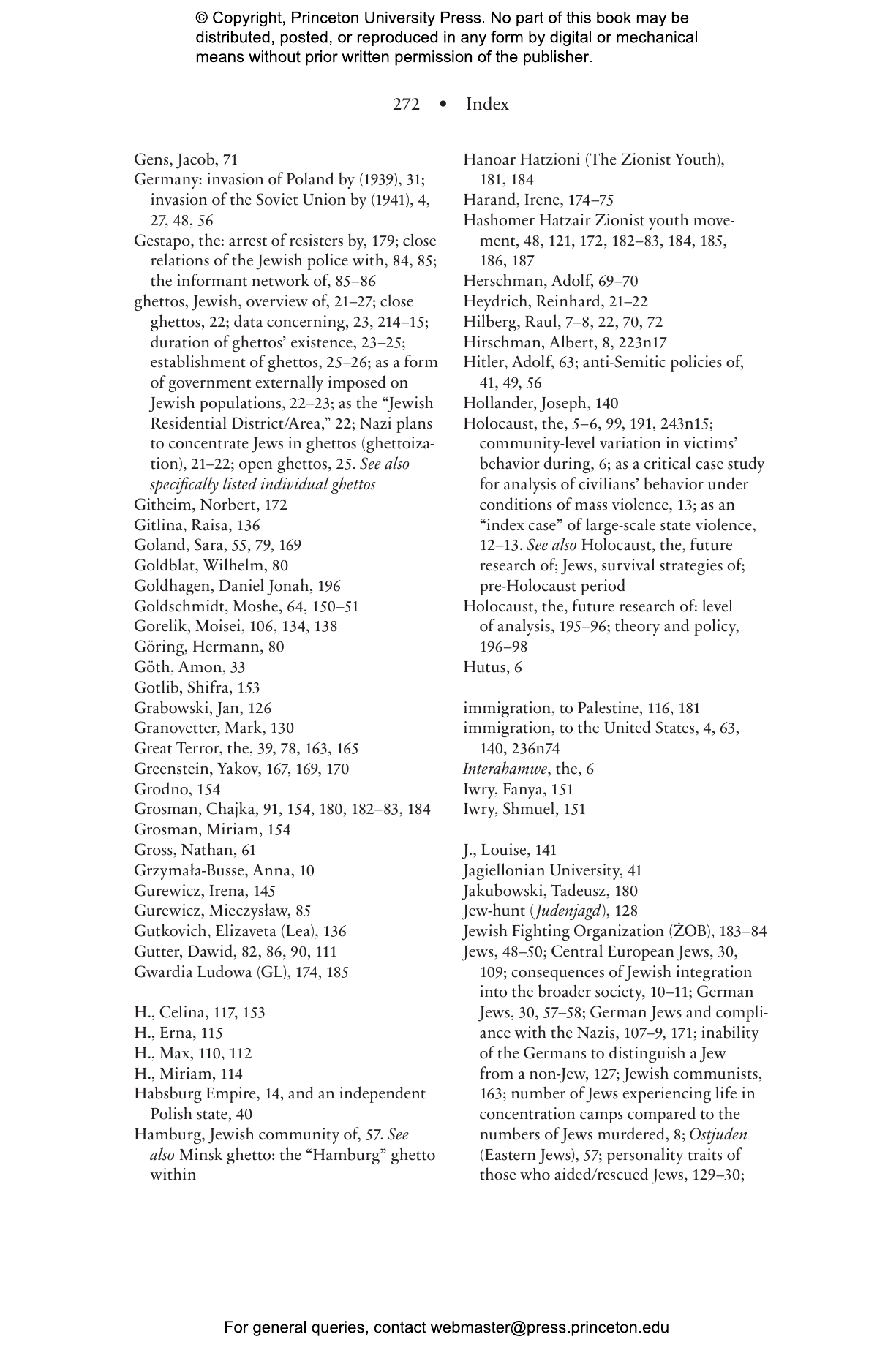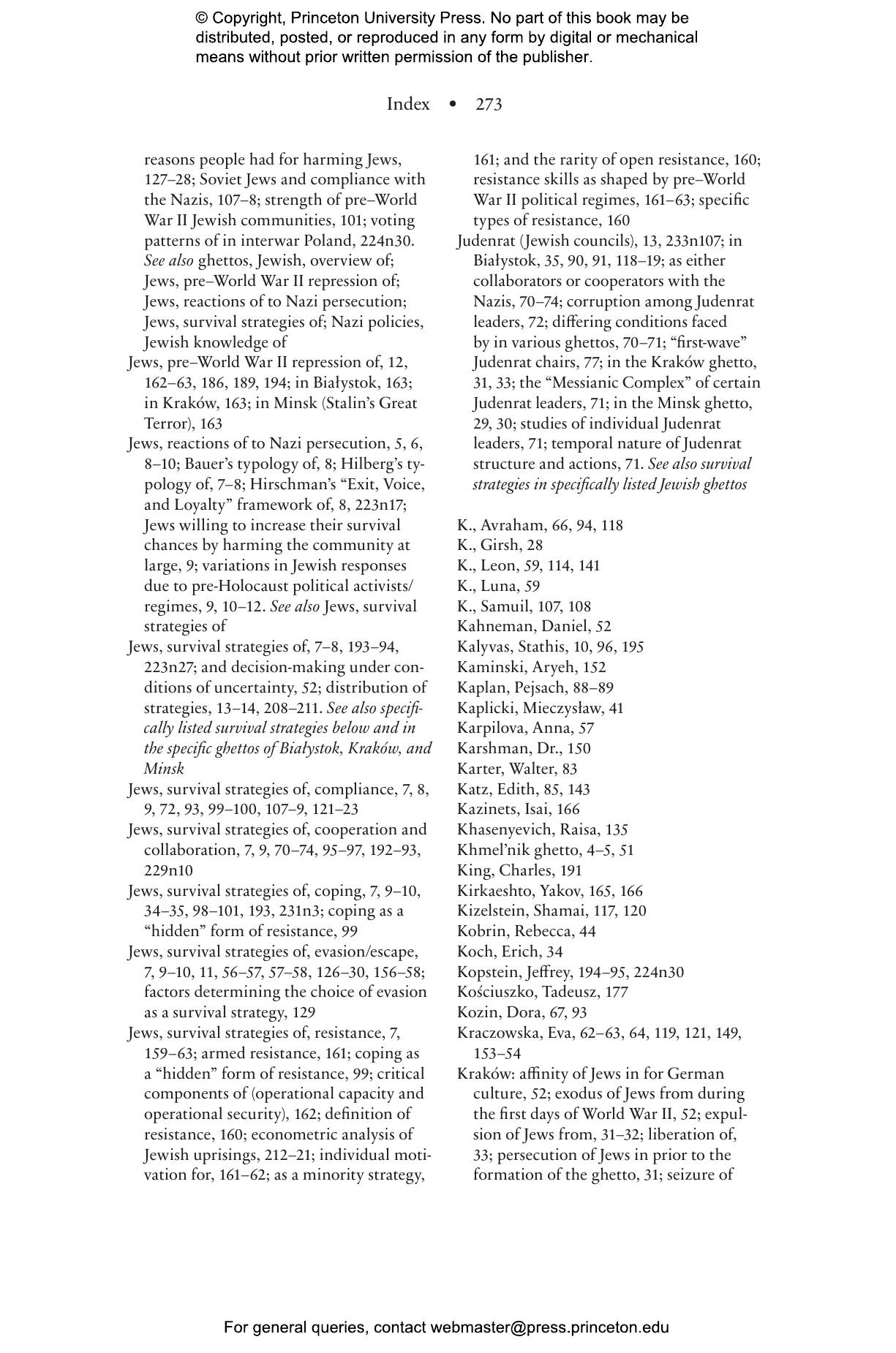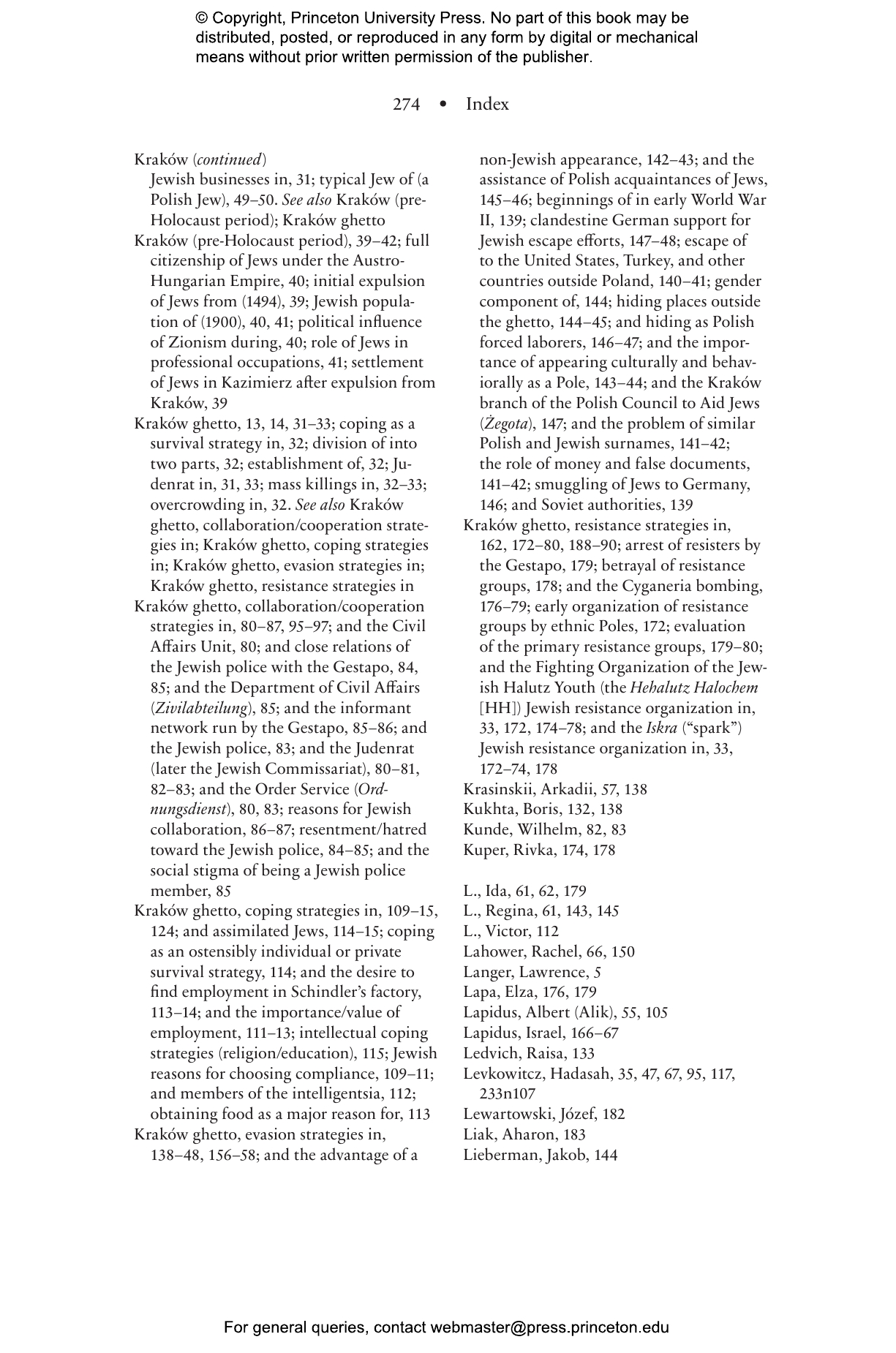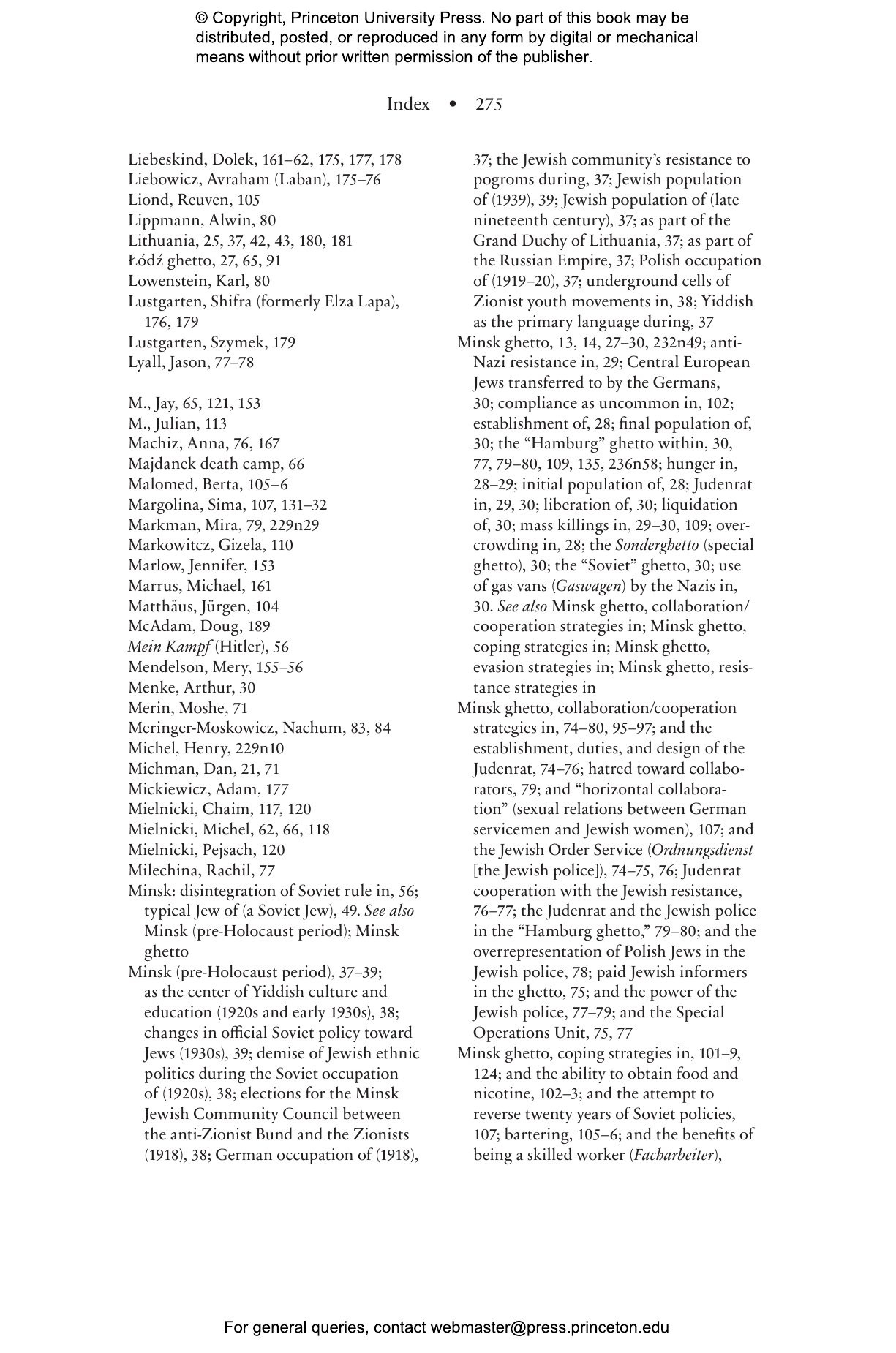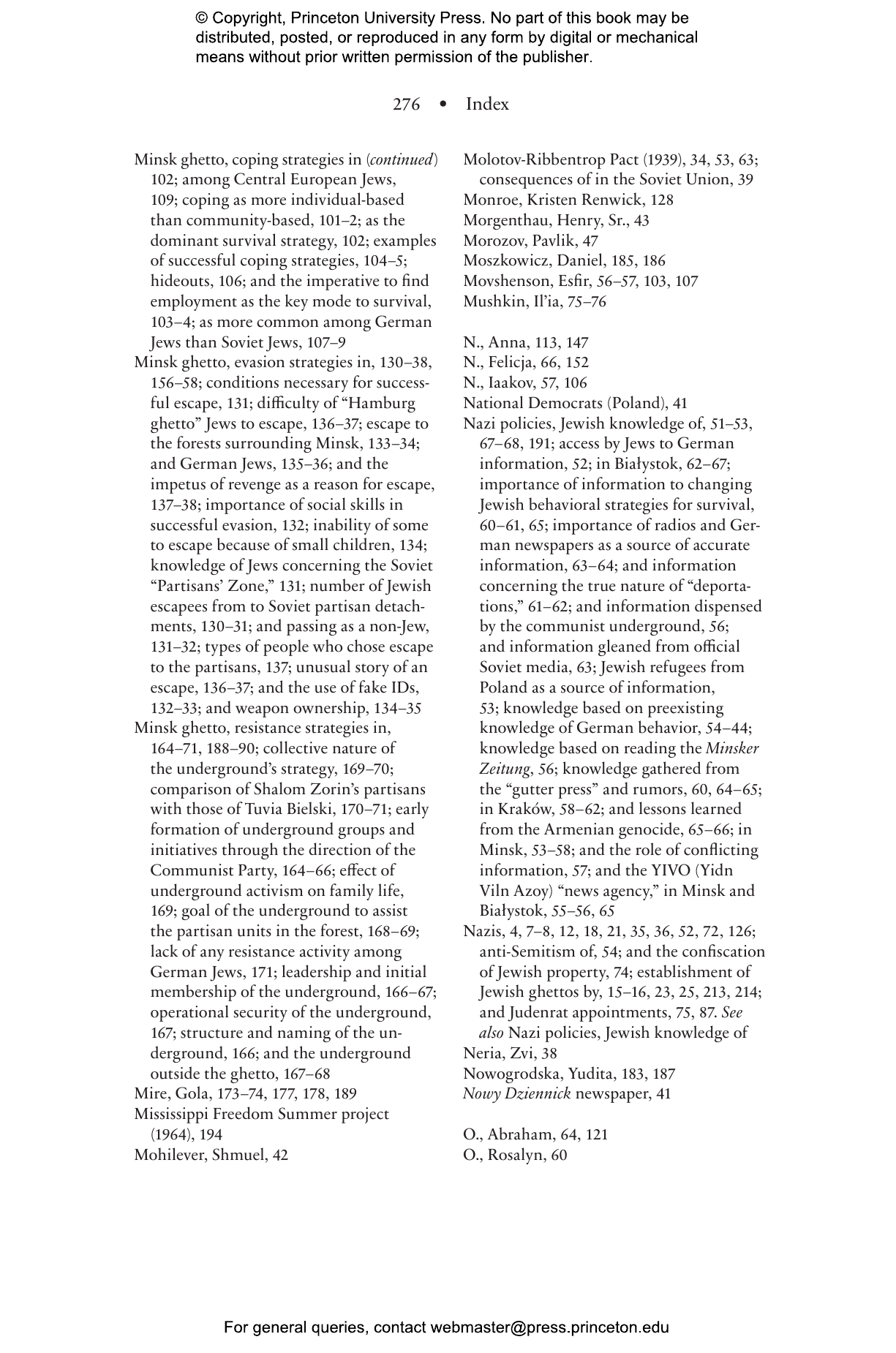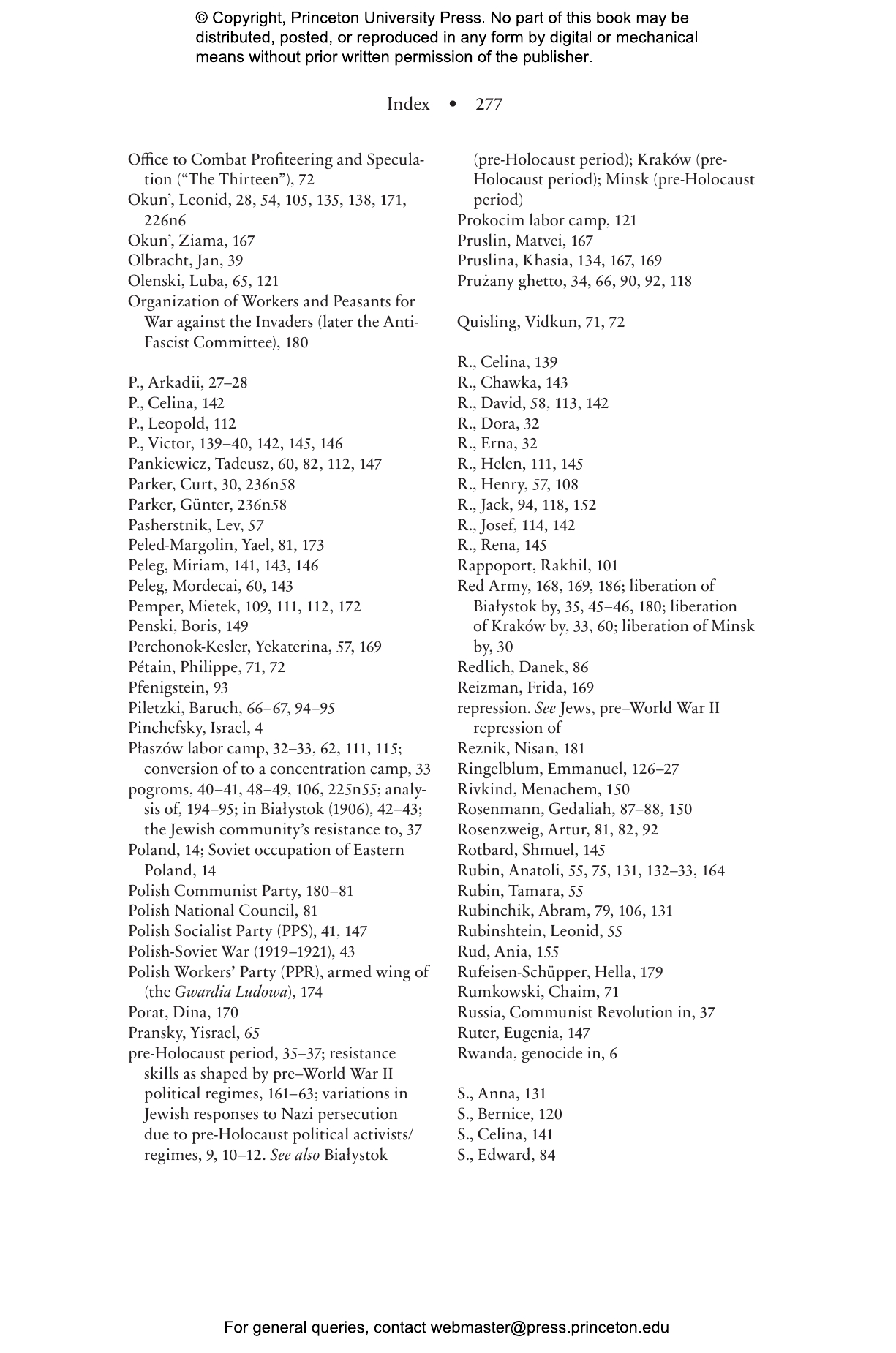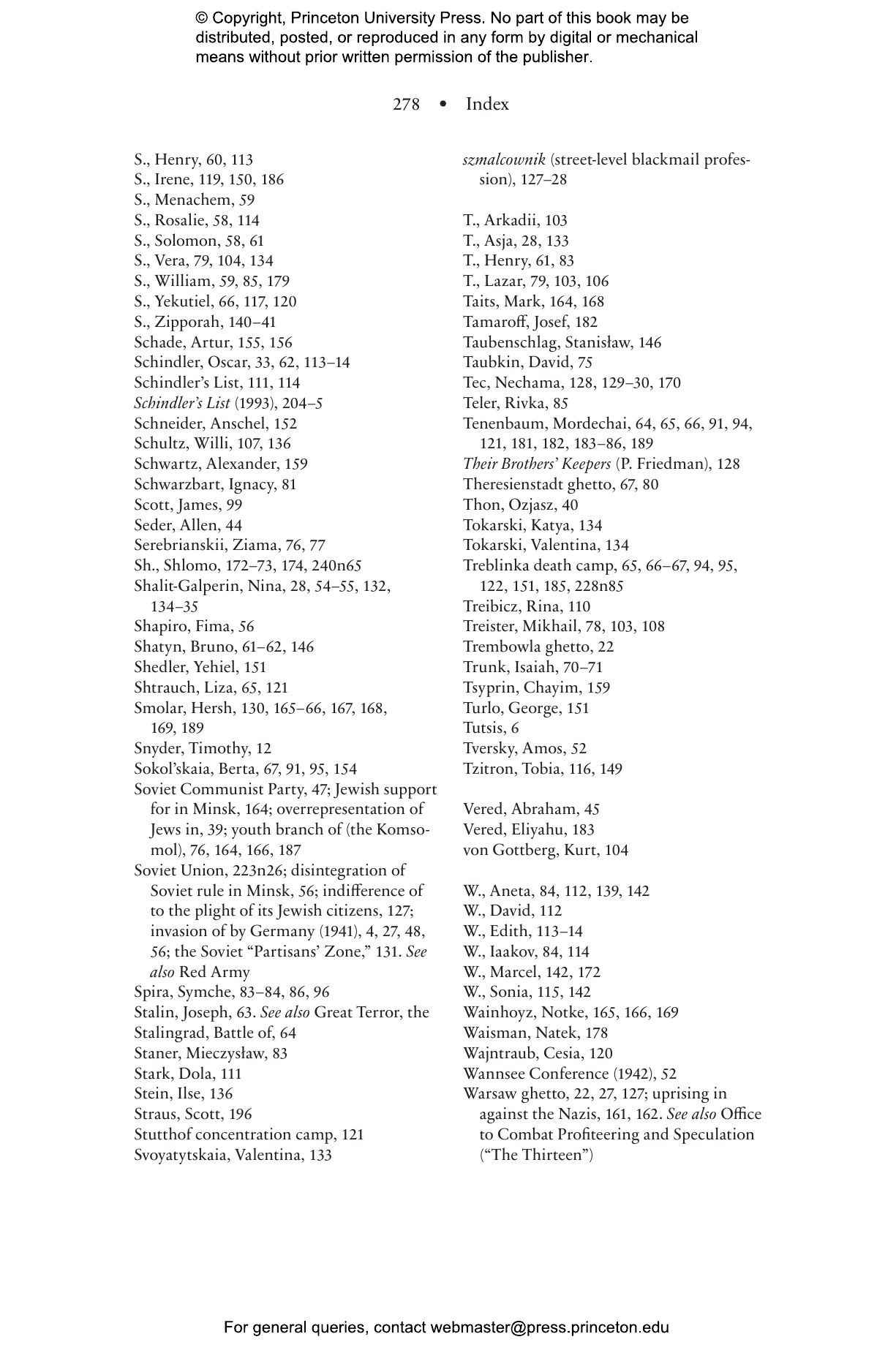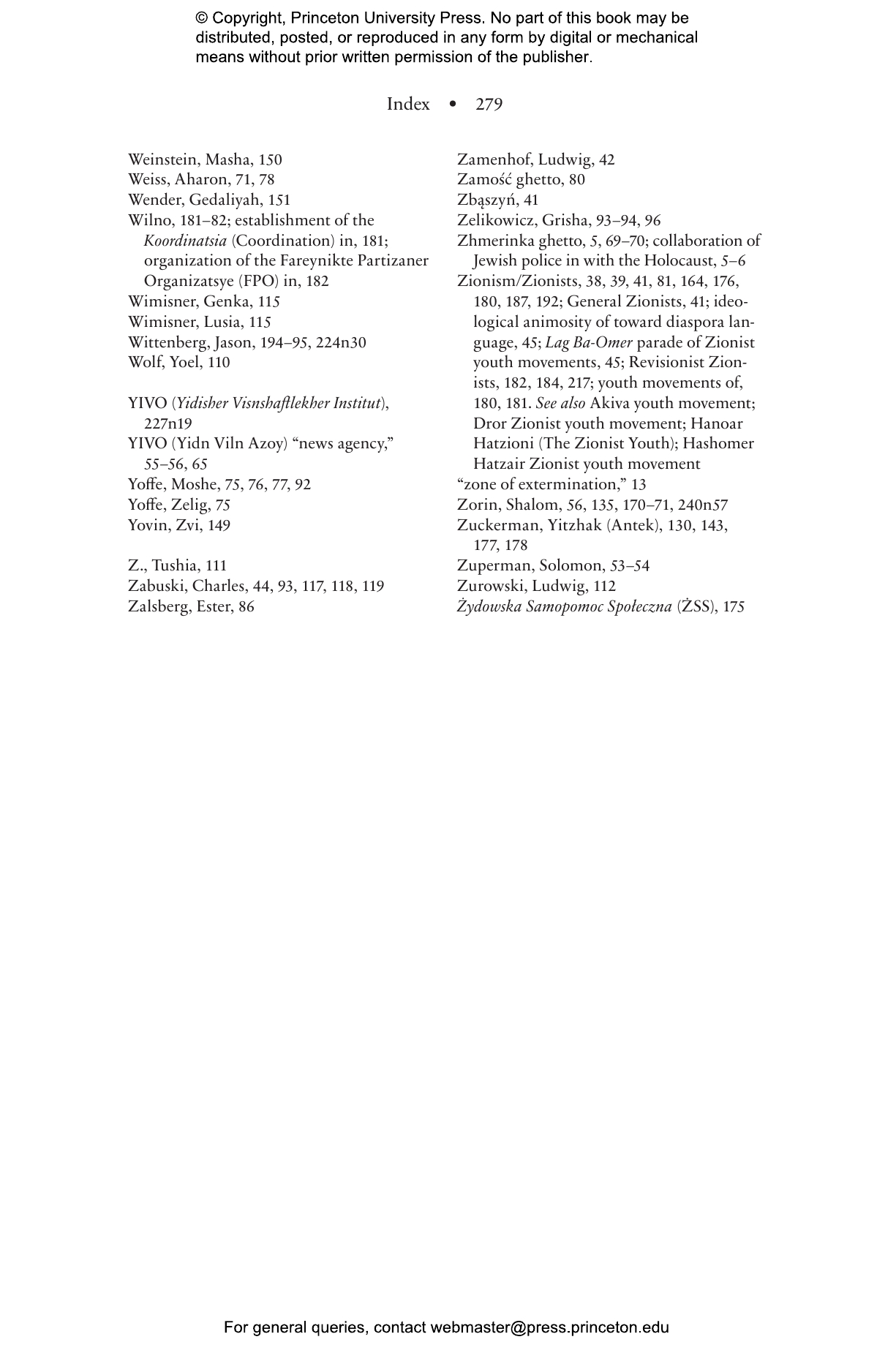Focusing on the choices and actions of Jews during the Holocaust, Ordinary Jews examines the different patterns of behavior of civilians targeted by mass violence. Relying on rich archival material and hundreds of survivors’ testimonies, Evgeny Finkel presents a new framework for understanding the survival strategies in which Jews engaged: cooperation and collaboration, coping and compliance, evasion, and resistance. Finkel compares Jews’ behavior in three Jewish ghettos—Minsk, Kraków, and Białystok—and shows that Jews’ responses to Nazi genocide varied based on their experiences with prewar policies that either promoted or discouraged their integration into non-Jewish society.
Finkel demonstrates that while possible survival strategies were the same for everyone, individuals’ choices varied across and within communities. In more cohesive and robust Jewish communities, coping—confronting the danger and trying to survive without leaving—was more organized and successful, while collaboration with the Nazis and attempts to escape the ghetto were minimal. In more heterogeneous Jewish communities, collaboration with the Nazis was more pervasive, while coping was disorganized. In localities with a history of peaceful interethnic relations, evasion was more widespread than in places where interethnic relations were hostile. State repression before WWII, to which local communities were subject, determined the viability of anti-Nazi Jewish resistance.
Exploring the critical influences shaping the decisions made by Jews in Nazi-occupied eastern Europe, Ordinary Jews sheds new light on the dynamics of collective violence and genocide.
Awards and Recognition
- Winner of the 2018 Alexander L. George Book Award, International Society of Political Psychology
- Winner of the 2018 Joseph Rothschild Prize in Nationalism and Ethnic Studies, Association for the Study of Nationalities
- Winner of the 2018 Bronislaw Malinowski Social Sciences Award, Polish Institute of Arts and Sciences
"A political scientist turns fresh eyes on the problem of how European Jews responded to the Holocaust as it was unfolding. . . . Of much interest to students of modern history but also to those engaged in humanitarian relief efforts, refugee relocation, and the like."—Kirkus
"Instances of . . . mass hysteria have been appearing on a weekly basis, revealing an historical illiteracy so vast that it could contain 1,000 books on the Holocaust. If the ignorant could read only one of them . . . Ordinary Jews would be an excellent way to begin their education."—Stefan Kanfer, City Journal
"Finkel provides a fresh and often fascinating analysis. . . . He makes a compelling case that the response of Jews was based in no small measure on their experiences before the war."—Glen Altschuler, Jerusalem Post
"Finkel's book on an individual’s choice and survival during the Holocaust focuses on how victims from three Jewish ghettos—Minsk, Kraków, and Bialystok—reacted in response to danger from the Nazis and their allies. . . . This study is fascinating in how Finkel weaves personal narratives from the victims with social science foundations in order to reach some macro conclusions. . . . Finkel’s book is provocative and worth reading for scholars looking to understand the victims within these wretched ghettos."—Choice
"As more Holocaust works push through the barrier of the Holocaust as unknowable, restoring Jewish life and agency before, during—and after—the Shoah is essential. Finkel's work makes a solid contribution in this regard without losing sight of the people, actions, policies, and laws most responsible for creating the contexts of such life-or-death ‘choices.’"—Peter Admirand, Reading Religion
"[A] most sensitive of investigations . . . Ordinary Jews is an ultimately important contribution toward the many writings on the subject of the Holocaust. Its complexity and deftness lies in Finkel's telling, which, if truth be told, resonates with all the clarity of subdued beauty."—David Marx, David Marx Book Reviews
"[A] fine book. . . . This book is very carefully documented with endnotes distinguishing between primary and secondary sources. Finkel himself is of Eastern European Jewish extraction and that colors his study with a very personal and poignant aspect enriching the research but in no way detracting from its scientific approach. His writing is clear and very readable. . . . This book is recommended for all academic Judaica collections and for JCC libraries."—Marion M. Stein, Association of Jewish Libraries Reviews
"The book’s persuasive theory, distinctive findings, specific real-life examples, and far-reaching policy options is amply rewarding. It models an ever-finer mode of scholarship, fills in major gaps in knowledge, and with its astute challenges to faulty conventional 'wisdom' makes a major contribution to Holocaust studies. Future discussion of survival decision-making in the ghettos will not be complete unless it draws on Finkel’s exemplary work."—Arthur Shostak, European Legacy
"Ordinary Jews is an important book for two reasons. First, it offers one of the few sustained efforts to analyze how Jews in different places behaved in response to Nazi rule instead of simply describing how they experienced it. . . . It also notices aggregate patterns of behavior that varied from community to community, and it tries to account for them using methods and insights from the social sciences."—David Engel, Shofar Book Forum
"Finkel’s ambitious study brings political science to Holocaust history, enriches our understanding of individual choices by the victims, sheds light on the conditions that influenced their decisions, and establishes patterns by comparative analysis of behavior in three ghettos."—Holocaust and Genocide Studies
"[Ordinary Jews] is not only brave, but opens up new avenues of research about the Holocaust and other processes of mass violence.—Laia Balcells and Daniel Soloman, Comparative Politics"
"Why do only some people targeted in genocide fight back? In this sensitive and original investigation, Evgeny Finkel shows that resistance to violence is a function of the skills and habits at a community's disposal. Finkel reveals the pattern of constrained choices that drove communal behavior during the Holocaust and, in the process, returns the idea of agency to discussions of victimhood and survivorship."—Charles King, author of Odessa: Genius and Death in a City of Dreams
"How do people react when they are targeted for genocide? Who cooperates with the killers? Who resists? Who flees and who simply tries to cope? In Ordinary Jews, Finkel's answer combines compelling historical evidence, convincing theory, and a moving narrative. This is a truly extraordinary book—rich with lessons for us all."—Nancy Bermeo, University of Oxford
"In this arresting and important book, Evgeny Finkel explains why individuals choose different courses of action when targeted by genocidal violence. Skillfully merging a large body of testimonial evidence from the Holocaust with archival-based case studies and statistical analysis of new datasets, Finkel highlights the critical roles of prior political experience and broad social integration. Ordinary Jews is a landmark work, as moving as it is incisive."—Stathis Kalyvas, Yale University
"Superb and pathbreaking, Ordinary Jews places victim agency at the center of its analysis. For too long genocide scholars have been concerned with uncovering the sources of perpetrator behavior while ignoring victim reactions as the genocide unfolded. The individual victim stories told here are heartrending yet fascinating in their complexity. The narrative was so compelling, I was reluctant to put the book down."—Manus Midlarsky, Rutgers University
"This is a very important and fascinating contribution to our understanding of genocide and the choices made not only by the perpetrators and bystanders but also by the victims. In explaining the different types of strategies the targets of genocide might use to ensure their survival, ranging from compliance to resistance to evasion, this compelling analysis returns agency to the victims."—Anna Grzymała-Busse, Stanford University
